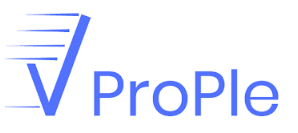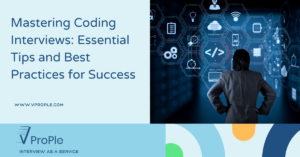This website use cookies to help you have a superior and more relevant browsing experience on the website.
Archives
Mastering Coding Interviews: Essential Tips and Best Practices for Success
Many coding professionals want to work for a big tech organization. However, most of them get stuck only because interviews for software engineering and programming positions are very different from other job roles. The technical coding interview process involves a series of tasks you might need to complete to get your dream tech job. If […]
read more5 Key Recruitment KPIs to Improve Your Hiring Strategies
Recruitment is a big investment as it requires getting your job postings before the right candidates, interviewing skilled people and finally onboarding the best ones. Since this process requires so much time and investment, hiring professionals must ensure that their time, energy and money are going in the right direction. Many hiring professionals do not […]
read moreMastering Case Study Interviews: A Comprehensive Guide for Effective Hiring
Finding top talent is important for modern businesses aiming to survive and thrive in the competitive landscape. In this situation, case study interviews are one of the most effective tools organizations can use to assess potential candidates. The reason? This type of interview provides valuable insights into the problem solving abilities, practical knowledge and analytical […]
read moreHow a Strong Employer Brand Drives Recruitment Success
Attracting and retaining top talent is crucial for many companies aiming to stay on top of the competition and achieve long-term success. In this case, employer branding strategy is a powerful tool that greatly influences the capability of an organization to attract the best candidates. Simply put, it is one of the first steps in […]
read moreCrafting Effective Job Descriptions: Best Practices to Attract Top Talent
Writing a job profile description is not just a daily task that you have to do whenever you have a vacancy in your company. It is a strategic opportunity or a marketing tool to showcase your employer brand, attract top talent, and ultimately streamline your recruitment process. Sometimes, writing job descriptions for open roles might […]
read moreRemote Interviews Unveiled: Challenges, Innovations and Best Practices
It is hard to deny the increasing popularity of remote interviews in today’s rapidly evolving digital landscape. With more and more companies replacing traditional interviews with virtual interviews, it is very clear that video interviews are here to stay and are the future of the hiring process.This article delves into the emergence of remote interviews. […]
read moreInnovative HR Strategies for Thriving in a Hybrid Work World
Have you ever wondered what the future of work will look like? The answer lies in the hybrid work model! This innovative model combines the best of in-office and remote work and offers unmatched flexibility and convenience to employees. That is why, despite recent pushes to return to office, many organizations either have or are […]
read more








